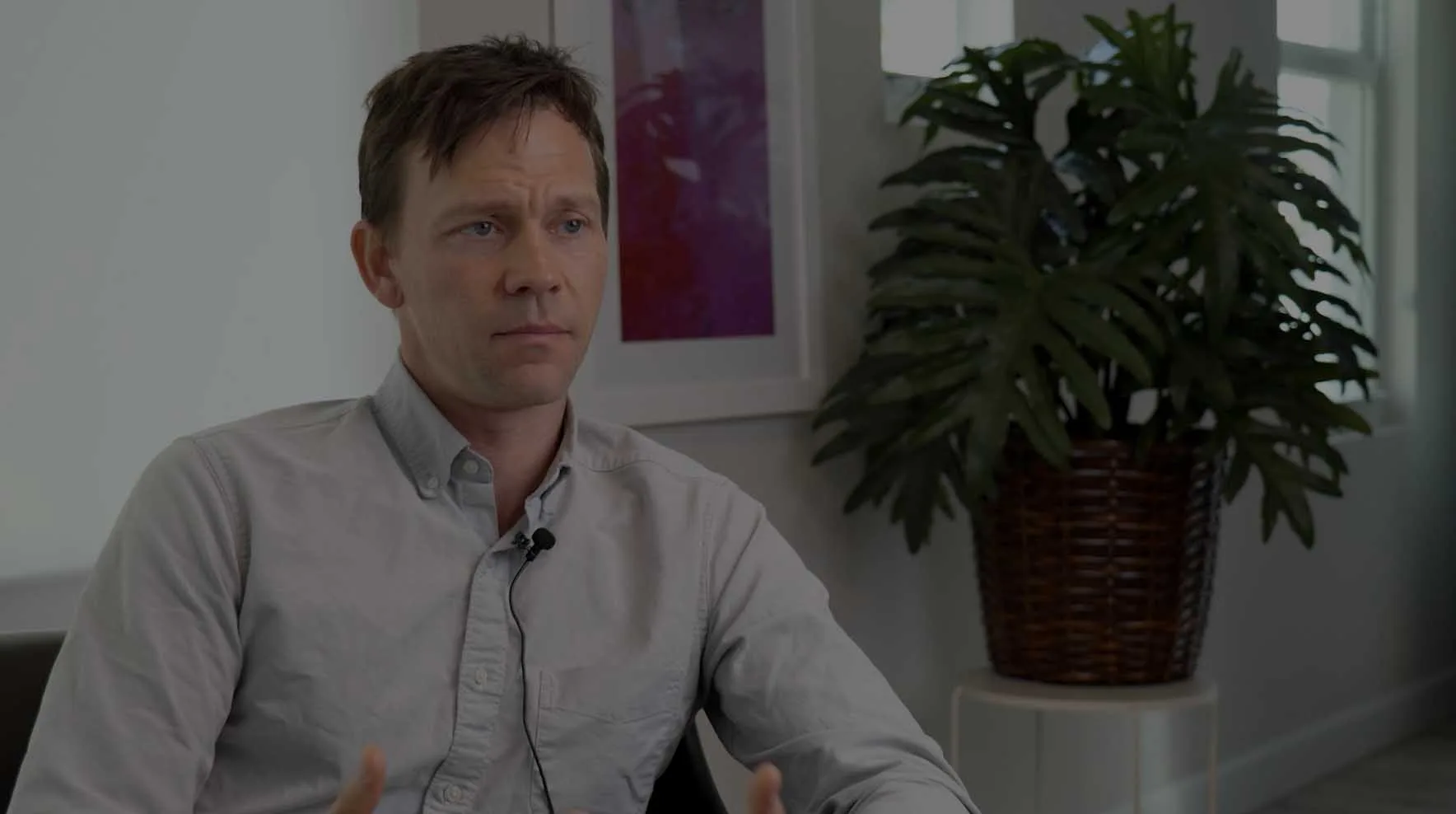

Interview with Brian McSwain: Licensed Mental Health Counselor
Beachway Therapy Center in West Palm Beach, Florida, specializes in helping people overcome their struggles with mental health and substance abuse. The facility is family-owned and uses evidence-based therapeutic interventions to help clients forge a path toward holistic healing and sobriety.
Beachway is fully equipped to assist patients dually diagnosed with mental health and addiction issues. The center offers a luxurious, supportive, and safe environment.
Beachway’s Program Director, Brian McSwain, understands the complex interplay between mental health problems and substance abuse. In a recent interview, the licensed mental health counselor discussed the different mental health disorders treated at Beachway and how they can interact and affect clients.
Read on for insights on how McSwain and his team address mental health and addiction issues, ensuring patients maintain a healthy mind and body.

Dual Diagnosis
Experts have found approximately half of all individuals who experience mental health problems also struggle with substance abuse. Dual diagnosis screenings can identify all underlying conditions that fuel or worsen addiction, enabling therapists to address each issue holistically.
What is dual diagnosis?
A dual diagnosis occurs when a person simultaneously struggles with a mental health issue and a substance use disorder. Individuals with this condition often have co-occurring disorders, such as severe anxiety or depression, that stimulate their addiction to drugs or alcohol.
Dual diagnosis treatment effectively manages the effects of a person’s specific co-occurring condition, allowing each patient to achieve lasting results.
What does effective dual diagnosis treatment look like?
Effective dual diagnosis treatment entails an analysis of any underlying mental health disorders and trauma-related triggers that may be pushing the patient to substance abuse.
Beachway’s dual diagnosis treatment facility is fully equipped to treat patients using a combination of unique, holistic therapy and specialized rehab programs. Therapists work with patients to identify underlying mental disorders that cause the addictive cycle.

Bipolar Disorder
According to the National Institute of Mental Health, bipolar disorder affects nearly 5.7 million American adults annually.
What is bipolar disorder?
Bipolar disorder is a mental illness that causes people to experience periods of mania followed by periods of severe depression. This exhausting mood disorder often plunges patients into a frenzied state that can go on for hours or even days, followed by a spell of intense depression.
How do people with bipolar disorder feel?
Bipolar disorder is one of the most challenging mental illnesses a person can endure, as it brings about high highs and low lows. Bipolar individuals often feel a wide spectrum of emotions and uncomfortable sensations that impact their sleep patterns, moods, and more.
How is bipolar disorder treated?
McSwain believes the first step to treating bipolar disorder is to ensure clients have the proper medication regimen to prevent manic episodes. Treatment also entails educating patients on what it means to live with bipolar disorder and helping them recognize warning signs when they are working into a manic or depressive state.
How does beachway help patients with bipolar disorder?
Beachway empowers clients to find relief from bipolar disorder symptoms by providing a management treatment plan that includes mood-stabilizing drugs and evidence-based behavioral therapy. The rehabilitation path also centers on group therapy to offer each patient some much-needed support.

Depression
The primary symptoms of depression can take a toll on a patient’s interpersonal relationships and trigger self-destructive behaviors.
What is depression?
Depression is characterized by feelings of emptiness, hopelessness, and crippling sadness that can permeate every aspect of a person’s life.
What factors in the patient’s life are contributing to depression?
For most patients, unresolved emotional issues and environmental factors are responsible for depression. McSwain emphasizes that a comfortable, supportive environment with a proper structure can help resolve the underlying issues perpetuating depression.
How do coping skills affect depression
According to McSwain, coping skills are vital to helping patients handle long periods of sadness and emptiness. People with depression may benefit from a community of supportive, like-minded people who share their struggles.
How does beachway help patients suffering from depression?
Beachway’s depression therapy and treatment center provides a supportive and relaxed environment with a schedule where patients can focus on recovery without worrying about everyday stresses. Therapists at the rehab center also create personalized discharge and aftercare plans to help clients overcome depression.

Anxiety
According to the Anxiety and Depression Association of America, depression affects nearly 40 million adults in the United States.
What is anxiety?
Anxiety typically causes overwhelming emotions of anxiety and uneasiness. People with this mental health disorder can turn to drugs or alcohol to ease their symptoms and regain a semblance of control.
When does anxiety require treatment?
Even though anxiety is a normal human experience, it requires treatment when it makes people avoid opportunities that bring them joy or success.
What types of therapy are helpful in treating anxiety?
At the core of therapy for anxiety is having a feel of patients’ thoughts and emotions to get them back to enjoying life. Beachway uses cognitive behavioral therapy, dialectical behavior therapy, mindfulness skills, and relaxation techniques to enable patients to manage anxiety and substance use disorders. These modalities of treatment can be useful in helping a patient’s relationship with anxiety.
How Brian McSwain Helps Patients Heal
McSwain uses his extensive experience in cognitive behavioral therapy and mental health treatment to help patients attain long-term recovery. He encourages those struggling with addiction to take steps toward recovery and overcome co-occurring conditions that trigger a relapse. As an experienced mental health therapist, McSwain enjoys enabling discouraged clients at Beachway to heal and restore a vision for their lives.

Learn More About Beachway's Specialty Programs
Beachway’s specialty programs leverage a range of treatment and rehab options. Certified therapists use solution-focused therapy based on each patient’s unique needs and interests to address unresolved trauma that often fuels mental health and substance abuse.
To explore Beachway’s addiction and mental health treatment options and start the journey toward lifelong sobriety, contact us today.


